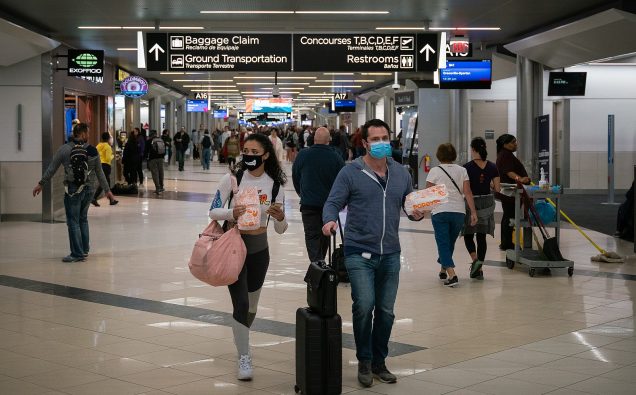
The world is on its edge again. With the discovery of the Omicron variant of the coronavirus, after the deadly Delta variant, many policymakers fear the specter of another wave of the virus hitting their countries.
Dr. Anthony Fauci, the head of the National Institute of Allergy and Infectious Diseases, said it was just a matter of time before the United States was to have its first case of the new coronavirus variant Omicron. His remarks, after the revelation of the first confirmed Omicron infection, represented the approach expected of a seasoned health adviser.
But not every advanced country in the world has responded to the emergence of the virus first reported in South Africa. Some countries tried to shut all air travel into their country, others resorted to blanket restrictions on travel to and from South Africa and other countries.
Although the U.S. too restricted inbound travel from South Africa to its credit it did not go for strict measures like a blanket ban on air travel or enforcement of sweeping new restrictions.
In fact, Omicron hit the U.S. just when it was about to ease travel restrictions for foreign passengers. Perhaps being the largest producer of the most effective COVID-19 vaccines gives U.S. President Joe Biden the confidence in the ongoing fight against the pandemic.
As of now most of the countries in the West appear to be back into the protective mode.
The United Nations has rejected travel restrictions and asked nations to calm down as they have the vaccines and protective measures that can help avert a sweeping spread of the virus.
Meanwhile, scientists continue to investigate the Omicron coronavirus variant.
The World Health Organization (WHO) last week asked countries not to panic but to prepare for its likely spread.

The global organization hailed South Africa’s and Botswana’s decision to report the appearance of the Omicron coronavirus mutation last month. The UN health agency says it will take another two weeks before more is known about how transmissible and how dangerous it actually is.
In Geneva, WHO spokesperson Christian Lindmeier stressed that data suggesting that Omicron was highly transmissible was only preliminary.
“It is much more preferred to prepare your country, your health system to possibly incoming cases because we can be pretty sure that this Omicron variant will spread around,” he said.
The Delta mutation – declared a variant of concern this summer – is now “predominant”, Lindmeier added, “with over 90 percent all around the world. This is how this virus behaves and we will not most likely be able to keep it out of individual countries.”
The WHO official also cautioned against knee-jerk reactions to reports that Omicron had continued to spread.
“Let’s not get deterred right now, let us first get as much information as possible to make the correct risk assessment based on the information that we will have, and then let’s move on,” he said.
Working with African governments to accelerate studies and bolster the response to the new variant, the World Health Organization (WHO) is urging countries to sequence between 75 and 150 samples weekly.
“The detection and timely reporting of the new variant by Botswana and South Africa has bought the world time,” said Dr Matshidiso Moeti, WHO Regional Director for Africa.
“We have a window of opportunity but must act quickly and ramp up detection and prevention measures. Countries must adjust their COVID-19 response and stop a surge in cases from sweeping across Africa and possibly overwhelming already-stretched health facilities.”


















[…] The Omicron fight: Prepare, not panic […]
[…] The Omicron fight: Prepare, not panic […]